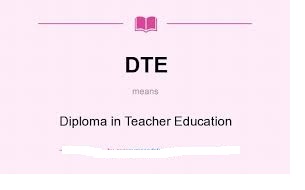
Diploma Course in Elementary Education
Diploma course in elementary education is a course with the duration of 2 years which is used to train up the teachers to teach the primary level. It can also be done through distance education or correspondence also. There are four semesters totally through course.
The candidates become fully-fledged to teach the primary and upper primary schools of different states within the country. D.Ed. course is designed in such a way that the teacher becomes fully eligible to teach with her improved assets due to the internship and the training which is provided along with the classroom instructions. This even includes the practices of education and also teaches rigorously about the principles of the child development and also the role and responsibility of a teacher in grooming the students.
Advantages of the course.
This course is an undergraduate diploma program in which they train the teachers to teach the students at the elementary level. Students who have already completed their intermediate education, can select this program and enroll themselves. The candidates are imbibed with the skills and knowledge so that they can communicate effectively with the students of the elementary or the primary school level. The course enables the teachers to be skilled at creating the learning activities which are interactive for the children and they are important and crucial for their progress. They also learn to assess their progression. After the course, the candidates can opt for the becoming teachers in any primary or other educational institutions.
Types of D.Ed. diploma in elementary education
The institute trains the teachers so as to teach the primary level. It can be taken up as a course only after the completion of intermediate.
Eligibility.
Every institution follows different eligibility criteria for the admission of the candidates. Some of the colleges offer the admission on the basis of their intermediate score.
The candidate should have passed with the score of 50% aggregate marks at their intermediate level. The age limit may vary from one state to another and the minimum age of the candidate should be 18 years and maximum 35 years for this course. The candidate should have good communication skills, creative thinking and a good attitude and have patience to teach.
The candidates in science stream should have passed with 60% minimum aggregate marks.
D.Ed. admission
The D.Ed. admission process starts with an entrance test and then an interview conducted for the candidates. Basing on the examination score, the candidates are given admission into the D.Ed. course. The final admission comprises of five phases.
Phase I
The candidates have to check the eligibility and apply for admission in their state.
Phase II
After filling the application form, the candidates are given admit card so that they may appear for the entrance exam.
Phase III
After the candidate clears the entrance exam and gets qualified, he/she will be selected on the basis of their examination score
Phase 4
Apart from the entrance score, there will be an interview conducted for the candidates for the counselling.
If there the candidates want to teach higher classes, they need to take the teacher eligibility test also. The teacher eligibility test are of two kinds:
Central Teacher Eligibility Test CTET and State Teacher Eligibility Test which can be different for different states.
D.Ed. course.
The diploma in elementary education is an undergraduate diploma program which contains a lot of topics like: historical patterns, classroom trends and teaching skills along with some physical theories, philosophical theories.
There are some other programmes also:
Basic Training certificate and another is Bachelor of Elementary
List of D.Ed. subjects.
Contemporary society teacher identity and school culture.
Childhood and development of children.
Cognition socio-cultural context.
Understanding the self.
Pedagogy of environmental studies.
Education society.
Leadership and change.
Mathematics education for the primary school
Health and education.
Work and education.
Pedagogy of English language.
Diversity and education.
Fine arts and education.
Proficiency in English.
The syllabus D.Ed. syllabus is divided into two sections: subject discipline and general course. The subject discipline is further divided into: methods courses and contact courses.
First year subjects.
Contemporary society
Childhood
Understanding the development needs of the childhood.
Understanding the child
Understanding self
Factors affecting development of self
Factors affecting personality development.
Pedagogy of English language
2nd year subjects.
Guidance and counselling
Areas of guidance
Difference between counselling and guidance
Cognition socio-cultural context
Culture concept
Cultural influence on education
Social change meaning and concept.
Causes and effects of social change
Sources of value education.
Pedagogy of environmental studies
Importance of EVS curriculum at primary level
Leadership and leadership styles.
Leadership concept.
Communication
Team building
Essential communication skills for teachers.
Barriers to effective communication.
Fine arts and education-planning and organisation of art
Evaluation in education
Visual arts and crafts
Importance of art education at primary level.
School health and education-
The salary after completion of D.Ed. is an attractive
The job profiles after completion D.Ed.
Candidates can get a job in any private schools or government schools,
day care centres, private tuition centre, teacher assistant, writer, home and coordinator.